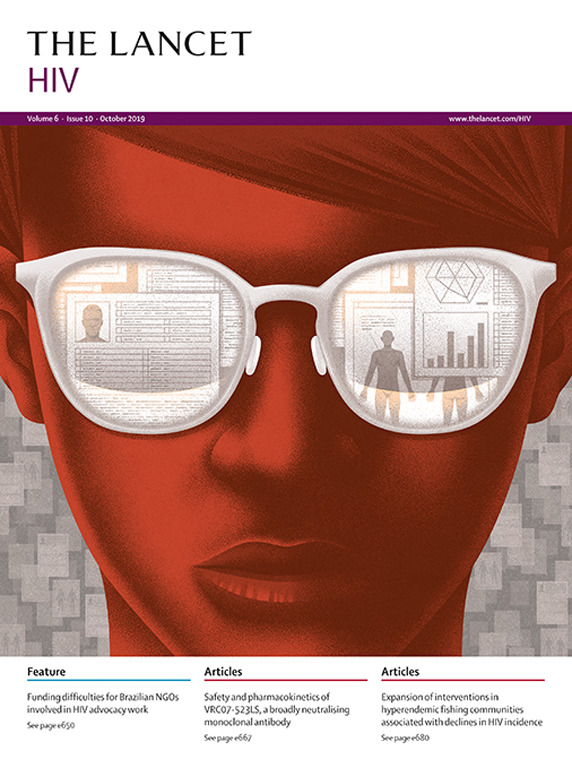Due to a historically progressive human-rights based approach to HIV/AIDS treatment and prevention, Brazil has globally been deemed an important standard-bearer of the HIV/AIDS response – however, given the growing influence of conservativism in the country, Brazil’s continued status as an HIV/AIDS leader remains uncertain. As HIV infections alarmingly increase in marginalized populations across the world, international HIV/AIDS governing bodies are now forced to reckon with the social and structural determinants that have unfairly concentrated the HIV epidemic in vulnerable communities.1,2 Given the failures of prior top-down HIV/AIDS strategies, community and grassroots mobilization are now at the forefront of the global HIV/AIDS conversation – and yet, the Bolsonaro administration seems to be pushing Brazil’s HIV/AIDS response into the opposite direction.2,3 In the most recent Lancet HIV publication, two articles analyzed the threats posed by the Bolsonaro government to Brazil’s record of success in responding to HIV and AIDS. The first Lancet HIV article, “Populism threatens Brazil’s HIV/AIDS Response,”4 analyzes the national implications of Bolsonaro’s ultra-conservative brand of populist politics, while the second article, “ABIA: maintaining interest in HIV in Brazil,”5 assess the importance of civil society in maintaining a rights-based approach to HIV/AIDS policy. Although each article critiques Brazil’s current administration through different analytic lenses, both articles conclude that progress toward an HIV/AIDS-free future relies heavily on social inclusivity and community mobilization.4,5
A critique of Bolsonaro’s illiberal views on governance, the first Lancet HIV article “Populism threatens Brazil’s HIV/AIDS Response,” highlights the inhumanity of Bolsonaro’s HIV/AIDS plan.4 Since his 2018 campaign, Bolsonaro has created a permission structure for hateful rhetoric and violent action against stigmatized communities. His exacerbation of social divisions runs contrary to the cultural change required to quell the HIV epidemic in vulnerable communities, and, as a result, fails to uphold the human rights to which all people are entitled. In addition to exacerbating and even promoting the social inequities that drive of the HIV epidemic, Bolsonaro has also begun to dismantle the institutions that have been built up over decades in order to support Brazil’s national HIV/AIDS response.4,6 Under the guise of institutional restructuring, the Bolsonaro administration has eliminated the Ministry of Health’s HIV/AIDS department and has subsequently censored all governmental HIV communication that fails to comply with the myopic notion of traditional heterosexual family values.4,6 By silencing of the HIV movement on a national level, Bolsonaro prevents many vulnerable communities – such as the PLHIV, sex workers, and LGBTQ communities – from accessing vital HIV care, and therefore restores an archaic and cruel government stance that brazenly ignores human rights abuses and rising AIDS deaths.4,6
In Brazil, the HIV response has historically paralleled the fight for true democracy, and NGOs have been critical to connecting these two movements. In particular, the Brazilian Interdisciplinary AIDS Association (ABIA) has served as one of the most prominent leaders of Brazil’s HIV/AIDS movements, and the Lancet HIV article “ABIA: maintaining interest in HIV in Brazil,” highlights the significance and uniqueness of ABIA’s leadership in Brazil’s HIV/AIDS response.5 With a network of HIV advocates and researchers that span the globe, ABIA constantly produces high quality publications and educational material that ensures information access to the most vulnerable HIV communities.5 ABIA is committed to the pursuit of social justice, and while the organization is rooted in grassroots advocacy, ABIA’s influence impacts all areas of the HIV/AIDS response. Historically, ABIA has played significant roles in the founding of the International Council of AIDS Service Organizations, the passage of Brazil’s ART access law, and the creation of Brazil’s Working Group on Intellectual Property (GTPI in Portuguese).5 Highly skilled in human rights advocacy and community mobilization, ABIA effectively amplifies the voices of the most vulnerable in a way that resonates with a global audience and stimulates appreciable policy change. Although NGOs have been especially successful in pressing for change in Brazil, the consistent decreases in HIV funding for NGOs in recent years have severely strained the operational capacity of many HIV NGOs.5 While current funding for a number of ABIA’s projects was approved by the previous federal administration, Bolsonaro’s aversion to human rights-based movements leaves renewed governmental funding highly unlikely.5
The most recent Lancet HIV publications provides valuable context over the continued struggle for social justice in Brazil. While the growing stigma and discrimination that is reinforced by Brazil’s hardhearted administration threatens progress toward an HIV/AIDS-free future, the proven strength of community and civil society organizations, such as ABIA, offers the HIV community hope amidst a disheartening political environment.
SOURCES
- (2019). Communities at the Centre: Global AIDS Update 2019. Retrieved from https://www.unaids.org/sites/default/files/media_asset/2019-global-AIDS-update_en.pdf
- UNAIDS Expresses Support for HIV2020 Conference. (2019, September 6). Retrieved from https://mpactglobal.org/unaids-expresses-support-for-hiv2020-conference/
- 2018 HIV2020 Alliance. (2019). https://www.hiv2020.org/
- Daniels, J. P. (2019). Populism threatens Brazil’s HIV/AIDS response. The Lancet HIV, 6(10), e650-e651.
- Daniels, J. P. (2019). ABIA: maintaining interest in HIV in Brazil. The Lancet HIV, 6(10), e652.
- (2019, May 27). Understand the dismantling of the AIDS response in Brazil. Retrieved from http://abiaids.org.br/entenda-o-desmonte-da-resposta-a-aids-no-brasil/32860

